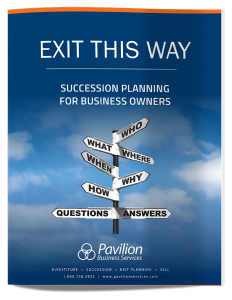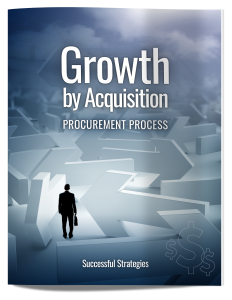What is the Difference Between Value and Price?
How do you determine your business value?
Some would argue that a business valuation is not useful to business owners for exit planning purposes because the valuation can become outdated quickly and it may not provide an accurate assessment of what a potential purchaser would be willing to pay for the company. However, the facts are that a valuation can be very useful to business owners in exit planning.
Fair market value (FMV) is a common value term used by business valuators. According to the International Glossary of Business Valuation Terms, FMV is defined as follows:
“The highest price, expressed in terms of cash equivalents, at which property would change hands between a hypothetical willing and able buyer and a hypothetical willing and able seller, acting at arm’s length in an open and unrestricted market, when neither is under compulsion to buy or sell and when both have reasonable knowledge of the relevant facts.”
FMV is a notional market concept
Price, however, is what is agreed upon by parties in an actual transaction. Under certain circumstances FMV and price will be similar, however, the two will rarely be equal. This is because certain factors reflected in price are generally not reflected in FMV, including:
Economies of scale or synergies: Potential cost savings, increased sales, eliminated competition, etc., that may result from combining the target company with the purchaser’s existing business, are generally not reflected in FMV.
- Negotiating strength:Price, but not FMV, will be affected by the relative bargaining abilities of the buyer/seller and their perceptions of the future of the business and its inherent risks.
- Transaction structure:Price will often include non-cash consideration whereas FMV is expressed in terms of cash.
- Underlying motivations:Buyer/seller motivations for purchase/sale that impact price are generally not reflected in FMV.
Your best planning tool
It is true that an outdated valuation may not be useful to business owners when the facts and circumstances affecting value have changed since the valuation date. However, a current FMV assessment can be useful for exit planning purposes for the following reasons:
- FMV can be used in negotiations with a potential purchaser because buyers generally consider the same valuation approaches and techniques used by business valuators in a FMV assessment.
- FMV provides a good intrinsic value benchmark (i.e. prior to economies of scale or synergies) that is useful for identifying and implementing value enhancement initiatives.
- FMV can serve as a basis for a pricing analysis, which does consider value from the perspective of a specific purchaser and attempts to quantify the economies of scale or synergies that may be realized by incorporating the target business with the purchaser’s existing business.
At the end of the day, price will be determined through negotiations between a buyer and seller which will be influenced by negotiating strength and a supportable value analysis. A current valuation or pricing analysis prepared by an independent business valuator provides the business owner with the edge needed in negotiations with a potential purchaser.
FREE Consultation
Resource Library
Facilities Management - Volume 2
A 140 page document on COVID 19 and Air Quality for Building Owners, Building Occupiers, Developers, Contractors and Facility managers. This book is Volume 2 Limited Edition – and every building owner & operator should have one, to protect employees, staff, visitors and management. Available for release now .
Forward Thinking
This document provides some of the key factors to consider when developing a business strategy and enhancing growth. The choices you make regarding who you work with during each stage of the business journey can make a significant difference. This document provides specific information and ideas that can increase your enterprise value by millions of dollars.
Exit This Way – Mid-cap
Our free guide will provide you with access to information that is crucial in making the correct decisions with regards to selling your business. This guide contains essential information about how to sell your business for maximum value. This Exit This Way Guide is a critical a resource if you are thinking about selling your business.
Succession Planning
This guide explains the process of planning ahead with tips for identifying and developing new leaders who can replace old leaders when they leave, retire or die. This guide details the key issues and challenges that can increase the final sale price and terms by several million dollars.
Featured Opportunities
















